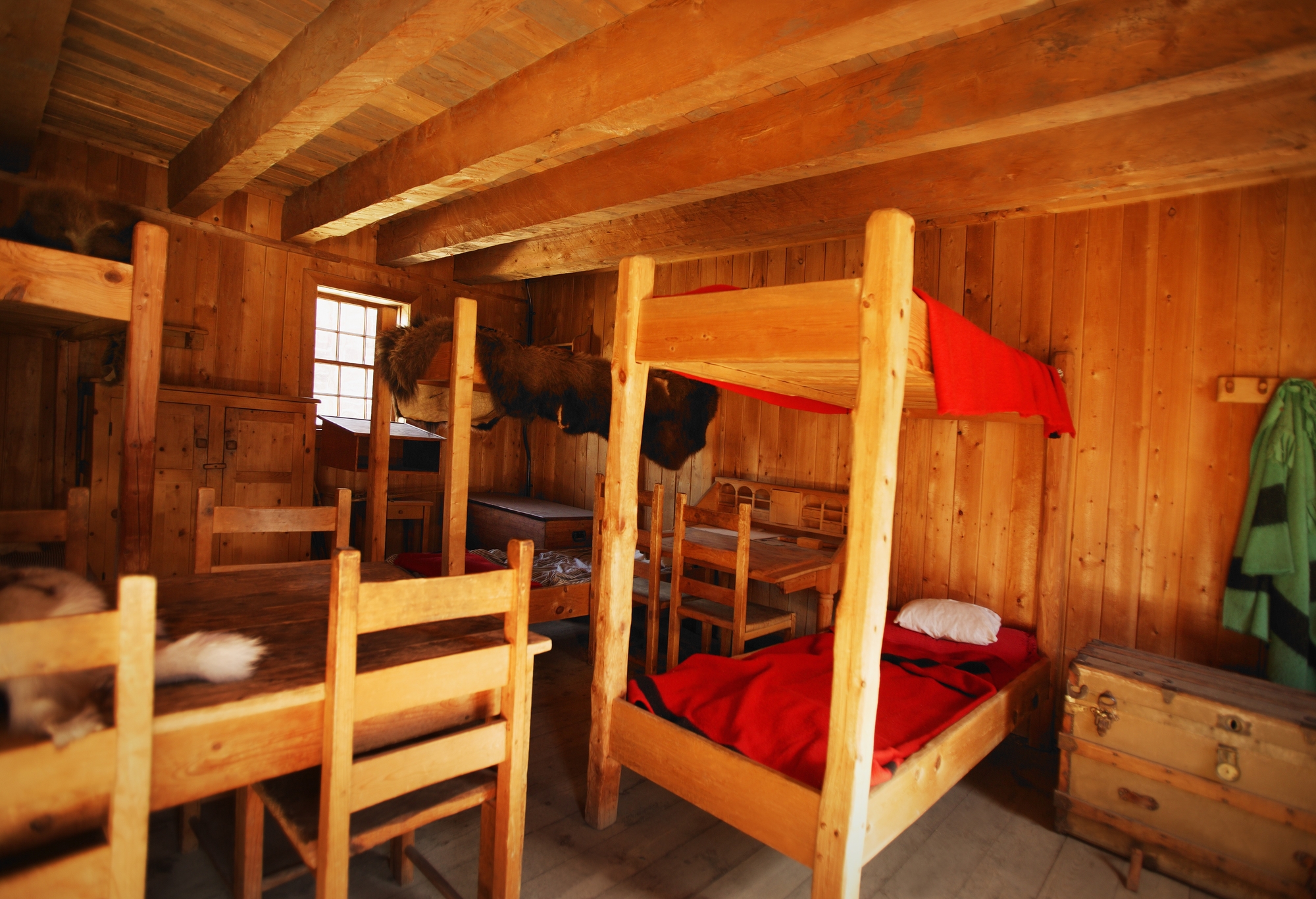These camp management tips and tidbits stuck with us like a new camp song.
Are you looking for some awesome, helpful and shareable camp management hacks?
From advice for helping campers feel safe, to ideas for motivating staff, here’s some hacks that might get help you get the most out of each day and every interaction.
1. Continuous Feedback Is a Powerful Motivator
A camp management challenge: You have to cram weeks of training into a short window of time. Then during the summer, you only have about two months to ensure every camper is having the best summer of their lives.
There just isn’t a lot of room for improvement during the summer! Giving two performance reviews during the season – say a midsummer and post-camp review – just doesn’t give struggling staffers the feedback they need to improve.
Continuous feedback, though, offers a solution.
Here’s how you can try it: Schedule weekly check-ins with your senior leadership team. These brief one-on-ones give you an opportunity to praise their strengths – a great motivator – as well as discuss areas for improvement.
Then, encourage your leaders to have similar regular conversations with their staff. This will ensure your culture of improvement flows from the top.
2. Use Post-Camp Communications Wisely
You might be tempted to start your marketing for next year as soon as the last camper goes home. But the last thing parents want to hear is a sales pitch. They’re more interested camp highlights, what they’re kiddos learned, and what you’re hoping to accomplish long-term at camp.
So rather than starting your early-early-bird registration campaign, use these initial post-camp communications to gain insights into what you’re doing right and what you could improve.
Here’s how you can try it: Ask parents to provide feedback. Online surveys, for instance, are a great tool for gathering info into what campers and parents felt about their experiences. You’ll be able to gauge the effectiveness of your programming.
Plus, be sure you’re personalizing communications. You might not have the time to write a personal note for each and every camper. But be sure you’re not blanketing your audience with a one-size-fits-all message.
Segment your email list and send a post-camp review personalized to your various audiences: Day campers, parents with younger campers, parents with older campers, and your staff, for instance.
A personalized post-camp messaging campaign will show that you care and that you’re committed to providing kids with the best summer camp experience possible. And it can provide insights into what you can do to get better.
3. Create Time to Look at the Big Picture

Summer moves at a lightning speed. Before you know it, spring has melted into summer and then summer falls into winter. And for camp directors and leaders, that means busy, busy schedules.
You might not have a lot of time to steal away from day-to-day operations to think about the future. But it’s absolutely important you devote time to these higher-level ideas.
Create time in your busy schedule to think about the future, to learn what types of programs are trending in your area, and to research hiring practices or camp software that can help your camp get better and grow.
Here’s how you can try it: Start by setting aside an hour or two each week to devote to brainstorming. And use this time to research summer camp management technology, read a book on management ideas, or learn how your competitors are approaching programming. This should be your time to strategize about making your camp better.
And by providing yourself time to think about the future, you’ll ensure your camp is ahead of the curve.
4. Take Advantage of Opportunities to Lead
As a camp director, all eyes are on you. Your leaders, junior staff, and campers are all looking for you to set an example of positive behavior and leadership. No pressure.
So make sure you’re leading by example.
That’s easier said than done, especially, considering the day-to-day speed with which things move. But fortunately, you can model leadership behavior by rolling up your sleeves and working hard alongside your staff. Listening to your staff and campers, and using their feedback to improve. Keeping your composure even when a task or dispute is uncomfortable or inconvenient. Highlighting the accomplishments of your staff. And avoiding playing favorites.
Demonstrating effective leadership will not only help you earn respect from staff and campers; it also serves as a powerful teaching tool for your younger employees.
5. Take the Time to Find the Right Team
Vetting staff can be a daunting task. You’ve got hundreds of applications to sort through, many of which are from youth seeking their first job or 20-somethings applying from overseas.

It might seem overwhelming, but putting the right team together will pay you back ten-fold. Great employees are worth their weight in gold.
Here’s how you can try it: Find tools that can help you automate and digitalize the process. Online applications, for instance, make it easy to search and organize your potential hires. And HR tools like automated reference checkers help you get in touch with references faster, without having to play phone tag.
6. Automate Whenever Possible
Automation! It sounds a little too futuristic to be used by camp directors. But the truth is: Automation is your best friend.
So what is automation?
Essentially, it refers to technology that can perform certain day-to-day tasks for you. Camp technology – like registration software, automated counselor reference checks, or a camp management platform – can all help you save time by freeing you from doing the manual filing and manual communications that these tasks previously required.
In the off-season, for instance, you might have hundreds of applicants to interview and for whom you need to check references.
Without the right tools, you might spend your entire fall, winter, and spring manually combing through applications, scheduling interviews, and contacting references.
Here’s how you can try it: A tool like an automated reference checker – which automatically emails surveys to references – can help to streamline an aspect of the process that might take you dozens of hours to complete.
So if you can – automate! The right technology makes it possible for you to automate and streamline a number of mission-critical tasks, including sending newsletters, filing registration forms, organizing your camper health forms, creating transportation schedules, and making bunk assignments.

7. Supercharge Your Communications
Camp directors wear many hats. That’s why many new camp admins wonder, “Is there a job a camp leader doesn’t do?”
But of all your important skills and job duties, communication bubbles right up to the top.
You’re responsible for communicating clearly with staff, families, and campers on a daily basis, listening to concerns and feedback, and ultimately ensuring that everyone’s on the same page.
Does the bus have a flat tire, and now you have to communicate that the schedule is changing? When you have to push out a message to the entire camp universe, a walkie-talkie might leave you wishing there was a better, more efficient way.
Here’s how you can try it: Integrate technology into your communications.
Embrace all the communication options you have: Walkie-talkie, phone, email, online messaging, web-based camp forums and message boards, etc. Plus, utilize a camp management platform that enables you to share data with your staff quickly.
A few ideas for empowering your communications efforts include:
- Make important data shareable and accessible, i.e. allergy reports, attendance records, and pick-up information
- Segment your audience to personalize messaging, i.e. have parent lists for individual programs so that you can tailor messages about what their children are learning
- Embrace tools that allow you to automate communications. Find a platform that will allow you to quickly distribute newsletters, updates, notices, notifications and important information
- Provide mediums for staff and family to share ideas and ask questions, i.e. an online message board or forum
8. Be Careful With Making Exceptions
If you give a mouse a cookie… You remember that famous children’s book. Well, the story could easily serve as a metaphor for camp management.
Why? Because you’re bound to be asked to make exceptions for staffers, leaders, and campers.
They might be seemingly minor concessions, like missing a day of training for a family vacation or getting an extension on curfew to visit friends nearby. But once you’ve made an exception for one counselor – given them that metaphorical cookie, if you will – you’ll likely be expected to do it for another.
You can avoid this by being clear with expectations and rules early in the camp season. Let your staff know what’s expected of them. Ensure campers know what rules to follow. And then, stick to what you propose.

9. Wear Your Camp’s Culture on Your Sleeve
Camp culture trickles from the top down. If you’re positive, honest and safe, chances are your campers and staff will be too.
But you don’t have to do it alone.
First, take time during staff training and the initial weeks of camp to instill camp spirit. Team-building games and exercises can help, and keeping your camp values posted in visible locations will also help keep them top-of-mind.
Ultimately, projecting and instilling a positive culture will help create a sense of community, ensure campers feel safe, and shape staff and camper attitudes early on. Just be ready to reiterate camp values throughout the course of the summer.
10. Where Do You Want to Be in Five Months?
The old adage is: Where do you see yourself in five years? But considering how quickly summer camp moves that’s not always the best timeframe to plan for the future. Instead: Think in shorter spurts.
Here’s how you can try it: Develop a 3-, 6- and 12-month working plan for your camp. And set goals for each period. By breaking down your long-term planning into small chunks, you’ll be making each step more management and actionable.
11. Get to Know Your Campers, Families, and Staff
What’s everyone’s favorite word? It’s their first name. As a camp director, remembering all those names might conjure up thoughts of studying flashcards throughout the summer.

But it’s important that you’re nurturing these relationships and you get on a first-name basis.
When staff, campers, and families are recognized, they feel like a part of the community, they’re more loyal, they feel safe, and they’re much more likely to be vocal advocates for your camp.
Here’s how you can try it: So instead of using flash cards, why not try a camp management platform designed to help you build relationships with the entire camp universe?
An integrated platform can make it easy to look up camper records, connect and communicate with families, and it can superpower your fundraising efforts, by helping you understand and connect with customers. The best camp management platforms are designed as a CRM (customer record manager) for camp staff. You can use all these records to create connections, better understand your audience, and ultimately, get to build first-name relationships with each and every person associated with your camp.
Conclusion: Successful Camp Management Starts with a Good Foundation
There’s no replacement for learning from those who have already been there. Great hacks can help your camp get ahead and stay ahead of the curve. And it might just offer a solution when you’re out of answers.
Really, the best advice sticks in your head like a camp song. It’s catchy, it speaks to your experience, and it’s unforgettable. Hopefully, these camp management hacks checked all those boxes.
But we want to hear from you? What are your favorite camp management tips to share with your camp colleagues?